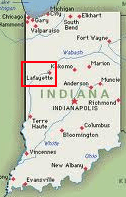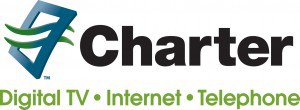The United States once led the world in Internet speed and infrastructure. Now, according to one estimate, it ranks at about 29. Brooke talks to David Cay Johnston, journalist and author of “The Fine Print: How Big Companies Use Plain English to Rob You Blind,” who says that companies continue to raise prices and engage in lobbying efforts to rewrite regulation, while avoiding necessary upgrades to infrastructure that would speed up America’s Internet. Companies promised major fiber broadband upgrades, but diverted that money to building a wireless conglomerate instead. (6 minutes)
- Home
- Issues
- Multimedia
- Providers
- 3 Rivers Communications
- AAPT (Australia)
- Alaska Communications
- Altice USA
- América Móvil
- Antietam Broadband
- Armstrong Cable
- Astound
- AT&T
- Atlantic Broadband
- BCI Broadband
- Bell (Canada)
- Bell Aliant
- BendBroadband
- Blue Ridge Communications
- Boost Mobile
- Bresnan
- British Telecom
- Buckeye
- Burlington Telecom
- C Spire
- Cable One
- Cablevision (see Altice USA)
- CenturyLink
- Charter Spectrum
- Chickamauga Telephone
- Cincinnati Bell
- Cinergy MetroNet
- Claro Puerto Rico
- Click! Network
- CMA Communications
- Cogeco
- Comcast/Xfinity
- CommSpeed
- Conexon
- Consolidated Communications
- Cox
- Cricket
- DigitalBridge
- DirecTV
- Dish Network
- DSL Extreme/trueSTREAM
- Earthlink
- EastLink
- Empire Access
- EPB Fiber
- EVDO Depot USA
- Exetel (Australia)
- FairlawnGig
- FairPoint
- Fibrant
- Fidelity Communications
- Fido
- Fido Cable
- Firefly Fiber
- Free Mobile/Iliad (France)
- FreedomPop
- Frontier
- GCI (Alaska)
- GoNetspeed
- Google Fiber & Wireless
- Grande
- Greenlight (NC)
- Greenlight Networks (NY)
- GVTC Communications
- Haefele TV
- Hargray
- Hawaiian Telcom
- HKBN (City Telecom)
- HKT (Hong Kong)
- Hotwire
- HughesNet
- Internode (Australia)
- Jio (India)
- Kit Carson Telecom
- Koodo
- Liberty Cablevision (Puerto Rico)
- Liberty-Bell Telecom
- Liberty/UPC
- LightSquared
- Long Lines
- LUS Fiber
- MCG
- MCTV
- Mediacom
- Metrocast
- Metronet
- MetroPCS
- MI-Connection
- Microsoft
- Mid-Rivers Communications
- Midco
- Middleburgh Tel (NY)
- Millenicom
- Mobilicity
- MTS (Manitoba)
- MWEB (South Africa)
- netBlazr
- NetZero
- NewWave Communications
- NextLight
- NorthwesTel
- Novus
- O2 (UK)
- Oceanic Cable
- OMGFAST
- Optus (Australia)
- Orange
- PCL Cable
- Public Mobile
- RCN
- Ringgold Telephone
- Rogers
- SaskTel
- Service Electric
- Shaw
- Sky (UK)
- Sonic.net
- Sony
- Sprint
- Starlink (SpaceX)
- Starry Internet
- Suddenlink (see Altice USA)
- SureWest
- Syringa Wireless
- T-Mobile
- TalkTalk (UK)
- TDS Telecom
- TekSavvy
- Telecom New Zealand
- Telekom Deutschland
- Telekom Malaysia
- Telkom (South Africa)
- Telstra
- TelstraClear (New Zealand)
- Telus
- Tesco (UK)
- Ting
- TracFone
- US Cable
- US Cellular
- USI Wireless
- Utopia (Utah)
- Verizon
- ViaSat Exede
- Vidéotron
- Virgin Media (UK)
- Virgin Mobile
- Virgin Mobile (Canada)
- Vodafone (New Zealand)
- Vodafone (UK)
- Wave Broadband
- Webpass
- WildBlue/Exede
- Wind Mobile (Canada)
- Windjammer
- Windstream
- WiredWest
- Wireless 'n Wifi
- WOW!
- Ziply Fiber
- Streaming Services
 Subscribe
Subscribe- About Us
- Alternatives!
- Contact Us
- Take Action!







